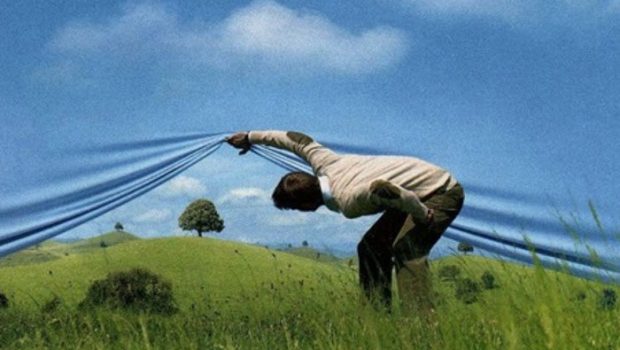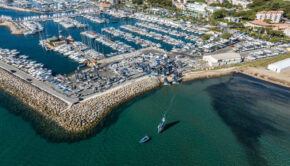If only we could imagine the future
Published on January 11th, 2021
When we hear, “What a difference a year makes,” we generally are recognizing significant positive progress. A lot can happen in a year, but with COVID-19, few imagined where’d we be a year later.
It was a year ago when InsideTheGames reported how the International Olympic Committee (IOC) was monitoring the impact of an outbreak of pneumonia as health authorities confirmed the first death from an unidentified virus in Wuhan, China.
The World Health Organization (WHO) believed then it was a new member of a family of viruses responsible for 41 people being diagnosed with the pathogen, but they had ruled out human-to-human contact as a way of transmitting the disease.
But two months later the Tokyo 2020 Olympics were postponed a year, because certainly in a year all would be well again. Hmm…
With Japan’s Prime Minister Yoshihide Suga now declaring a state of emergency for the nation’s capital and surrounding areas as COVID-19 cases surge to the highest levels since the start of the pandemic, Japanese citizens are losing enthusiasm for the quadrennial Games.
More than 80% of people in Japan who were surveyed in two recent polls say the Tokyo Olympics should be canceled or postponed, or say they believe the Olympics will not take place. The polls were conducted by the Japanese news agency Kyodo and TBS — the Tokyo Broadcasting System.
The results are bad news for Tokyo organizers and the International Olympic Committee (IOC) as they continue to say the postponed Olympics will open on July 23, and the IOC has repeatedly said how the Games will not be postponed beyond 2021.
The international sports competition has only been canceled three times: once during World War I (1916) and twice during World War II (1940, 1944).
Japan has controlled the virus relatively well but the surge has heightened skepticism about the need for the Olympics and the danger of potentially bringing 15,000 Olympic and Paralympic athletes into the country.
The Olympics could also attract tens of thousands of coaches, judges, officials, VIPs, sponsors, media and broadcasters. It is not clear if fans from abroad will be allowed, or if local fans will attend events.
Japan has attributed about 3,800 deaths to COVID-19 in a country of 126 million.
The TBS poll asked if the Olympics can be held. In the telephone survey with 1,261 responding, 81% replied “no” with only 13% answering “yes.” The “no” responses increased 18 percentage points from a similar survey in December.
In Kyodo’s poll, 80.1% of respondents in a telephone survey said the Olympics should be canceled or rescheduled. The same question in December found 63% calling for cancellation or postponement.
Kyodo said the survey covered 715 randomly selected households with eligible voters. Neither poll listed a margin of error.
Japan is officially spending $15.4 billion to hold the Olympics, although several government audits show the number is about $25 billion. All but $6.7 billion is public money.
The Switzerland-based IOC earns 91% of its income from selling broadcast rights and sponsorships.
The American network NBC agreed in 2011 to a $4.38 billion contract with the IOC to broadcast four Olympics through the Tokyo. In 2014 it agreed to pay an added $7.75 billion for six more games — Winter and Summer — through 2032.
Tokyo Olympic Sailing Program
Men’s One Person Dinghy – Laser
Women’s One Person Dinghy – Laser Radial
Men’s Two Person Dinghy – 470
Women’s Two Person Dinghy – 470
Men’s Skiff – 49er
Women’s Skiff – 49erFx
Men’s One Person Dinghy Heavy – Finn
Men’s Windsurfing – RS:X
Women’s Windsurfing – RS:X
Mixed Multihull – Nacra 17
Original dates: July 24 to August 9, 2020
Revised dates: July 23 to August 8, 2021









 We’ll keep your information safe.
We’ll keep your information safe.